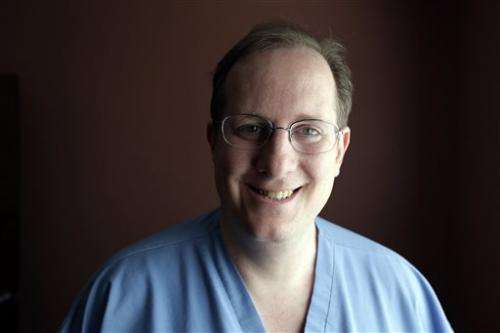US clinics say not best place to check for Ebola

The deadly virus' arrival in the U.S. has put the spotlight on weak spots in American hospitals, but those facilities are not the only ones who have suddenly found themselves on the front lines against Ebola.
At least two people who feared they could have Ebola have turned to urgent care clinics, a fast-growing segment of the U.S. health care industry that for many people have become de-facto emergency rooms. They are not, however, equipped like hospitals to treat serious illnesses, such as Ebola, nor do they have isolation units.
Clinics are urging potential patients to get checked for the highly contagious virus at a hospital.
Given the problems at the Texas hospital, where Thomas Eric Duncan died and two nurses have been diagnosed with the virus, an Ebola case could have posed even greater problems at a clinic or smaller hospital, experts say.
"That would be an even less controlled situation," said Dr. David Weber, an epidemiologist at the University of North Carolina's hospital. "The likelihood for that is so remote that they may never have thought about that."
Still, clinics are preparing staff in case someone with Ebola does walk in. They are distributing protective gear and quickly trying to get up to speed on the best protocols to teach their health providers.
Dr. William Gluckman of the Urgent Care Association of America, which represents more than 2,600 clinics, said the facilities want anyone who suspects they may have contracted Ebola to go to a hospital emergency department.
The Urgent Care Association of America sent emails to its roughly 6,400 members asking them to spread that message.
With more than 9,000 clinics around the country, urgent care is designed to treat as many patients as quickly as possible for minor illnesses, like the flu or a sliced finger.
But people are increasingly using them for any emergency to avoid the costs, long waits and crowds at hospitals.
MedExpress—which runs 138 clinics in 11 states—said its employees have been told to encourage patients with flu-like symptoms who have been in West Africa or in contact with someone infected with Ebola to go to a hospital.
The Centers for Disease Control and Prevention says Ebola isn't contagious until symptoms appear. Ebola isn't spread through the air like the flu; people catch it by direct contact with a sick person's bodily fluids, such as blood or vomit.
The urgent care association recommends front desk staff ask for specifics on symptoms from patients and recent travel history.
If that the person has a fever, headache or other flu-like symptoms and has been in an Ebola hot spot, clinics have been told to isolate them in a single room, Gluckman said. The clinic should call public health officials and contact a hospital to transport them there as quickly as possible, per CDC guidelines.
Patients at the urgent care clinic in Frisco, a suburb north of Dallas, were held briefly after Dallas County sheriff's deputy Sgt. Michael Monning went there with flu-like symptoms. Monning had entered Duncan's apartment but had no direct contact with him.
Monning was transported to a hospital where it was determined that he did not have the virus.
Patients at the practice in Braintree, about 12 miles (19 kilometers) south of Boston, were also held briefly on Sunday while the man was taken to a hospital, where it was determined he did not have Ebola. The car that he drove to the office in was decontaminated by crews in hazmat suits.
© 2014 The Associated Press. All rights reserved.















